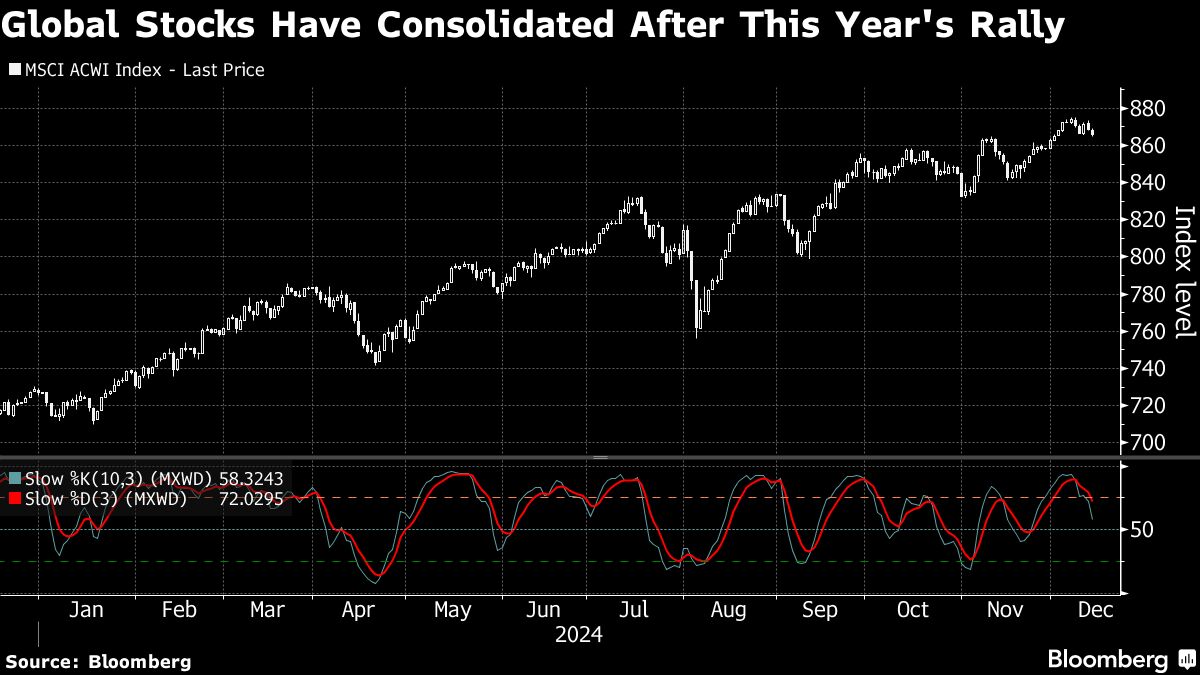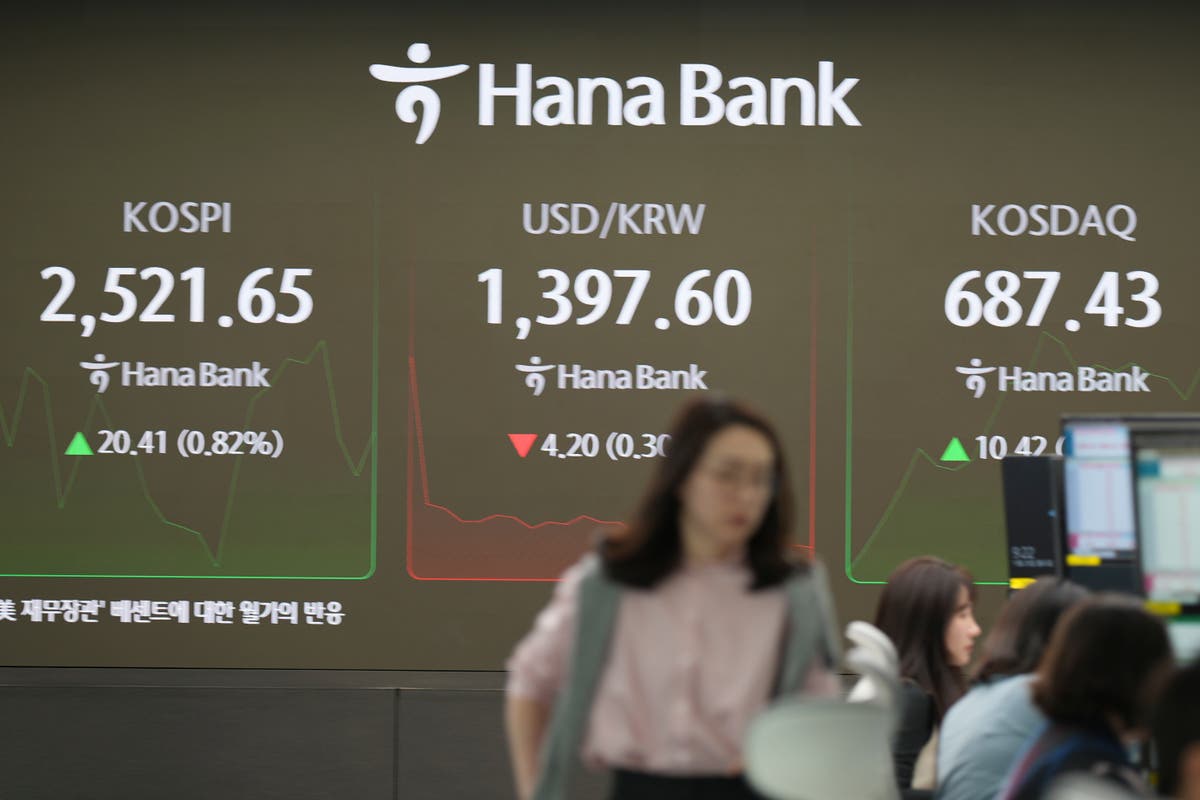(Bloomberg) — Asian stocks are set to fall on Monday ahead of a swath of Chinese data and a vow from the nation’s regulators to stabilize markets. South Korean assets will be closely watched after President Yoon Suk Yeol was impeached.
Most Read from Bloomberg
Equity futures in Australia, Hong Kong and mainland China pointed to losses while those in Japan gained. The S&P 500 pared initial losses on Friday ahead of a possible hawkish cut by the Federal Reserve later this week.
The moves came as investors readied themselves for the final full week of trading this year with a series of central bank meetings including the Fed, Bank of Japan and Bank of England. Traders may begin to take profit on this year’s almost 20% rally in global stocks, fueled by gains in US tech shares and euphoria over AI.
“The uncertainty this brings may initially result in further position squaring and limit buying activity in risk,” said Chris Weston, head of research at Pepperstone Group in Melbourne. “With developed market equities having already had such a year, throw in some big event risk and things a little funky for traders this week.”
Chinese stocks are expected to extend a selloff sparked Friday amid disappointment after Beijing pledged to boost consumption but failed to offer details on fiscal stimulus. Regulators at the weekend vowed more efforts to stabilize the property and equity markets, including increased monitoring of futures and spot trading, ahead of economic data set to be released that includes retail sales and industrial production.
The People’s Bank of China may also keep a cap on the yuan through its daily fixing as the currency faces pressure over the prospect of US tariffs, according to Commonwealth Bank of Australia.
“We expect the PBOC to keep fixing USD/CNY below 7.2000 to offset US dollar strength until there is more clarity on US tariffs,” strategists including Joseph Capurso wrote in a note to clients.
Elsewhere in Asia, the Bank of Korea pledged to use “all available policy instruments” to stabilize stock and currency markets after Yoon’s impeachment on Saturday over his short-lived attempt to impose martial law. Yoon is suspended from exercising presidential powers, and the constitution requires the prime minister to assume the role of acting president.
“Political turmoil will likely persist but unlikely to cause an extreme market reaction in USD/KRW and Korea rates,” Societe Generale analysts including Suktae Oh wrote in a note to clients. “All this political turmoil should result in monetary and fiscal stimulus actions in the early part of next year.”
















